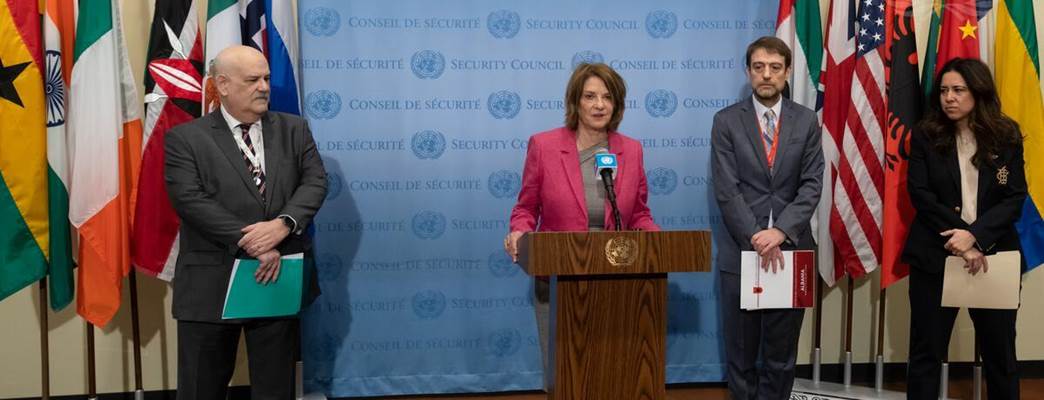Allow me first to thank SRSG Lyons and Mariam Safi for their updates and insights.
After six months of Taliban rule, Afghanistan is facing one of the world’s most rapidly growing humanitarian crises. It is a disaster stemming from many years of conflict, climate change, drought, and economic collapse.
Now, half of the population face acute hunger. Over 9 million people are displaced. Millions of children are out of school. The health system is overburdened. And women and girls in particular lack access to critical health services.
Humanitarian and development assistance from the international community will not be sufficient to respond to the challenges facing Afghanistan – the de facto authorities must recognise and fulfil their responsibilities to meet the needs of the Afghan people.
President,
We also remain deeply concerned by the continuing level of violence, abuses of power, and the unpredictable security situation in Afghanistan. The de facto authorities must heed the appeals of the Afghan people, and the international community. Respect for the rule of law and human rights, and a more representative government, are necessary for sustainable peace – and for national and international legitimacy.
The rights of women and girls are inextricably linked to Afghanistan’s stability and prosperity.
To build a stable, resilient, and self-reliant country: girls and boys must have equal access to education; and both women and men must be able to contribute to all sectors of Afghan society – including policymaking.
At this critical point, the decisions of the de facto authorities will have immense impact on both the immediate humanitarian situation, and the long-term efforts to avoid Afghanistan remaining in a perpetual humanitarian and economic crisis.
President,
The international community must do its utmost to assist the people of Afghanistan. Despite our concerns, we must engage and challenge the de facto authorities to: alleviate the humanitarian emergency; to push them on human rights issues; and to counter international terrorism.
The UN must be part of the solution in Afghanistan. And for this, we need a continued, robust, UN presence. As we look ahead to the renewal, it will be important to maintain the flexibility of the current mandate of UNAMA, while adjusting to the new realities on the ground.
We believe the recommendations contained in the Secretary-General’s report provide a good foundation. The SRSG and her team need a strong mandate to promote political dialogue and engage with the Taliban, to monitor and report on human rights, and facilitate humanitarian and basic human needs efforts.
As penholder on Afghanistan, and the UNAMA mandate resolution, we appreciate the constructive engagement of all Council members in the ongoing negotiations, and look forward to the renewal of a strong mandate by 17 March.
Thank you.
